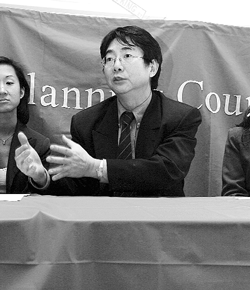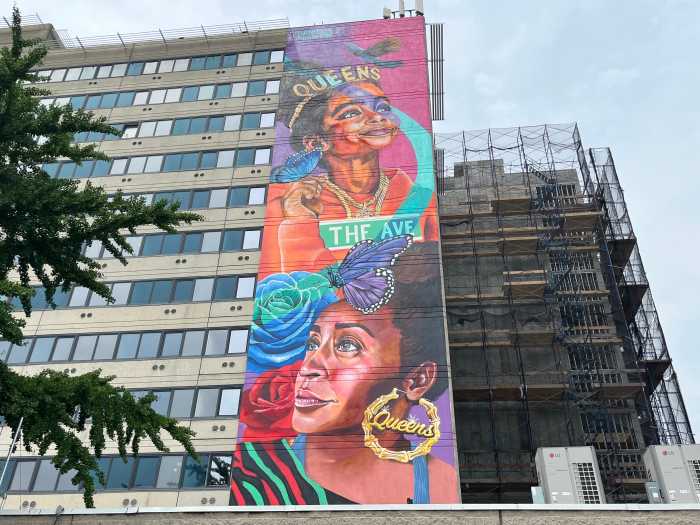By Nancy Reardon
An elderly Chinese man recently told Tracy Luo about some problems he was having at home. He had come to America for freedom, but since Sept. 11, he has not felt safe in his Chinatown neighborhood. He said he was afraid to ride the subway and buses and has been fighting with his wife for no reason.
“After three years, this elderly man still has very strong feelings about 9/11,” said Luo, director of Asian Outreach and Public Education of Asian LifeNet, a mental health association in Chinatown. “We still have a lot of work to do in this community.”
Three years after Sept. 11, this man is part of a very small number of Asian-Americans who have sought help for emotional problems or stress. The Chinese-American Planning Council established the CPC Help Center this January with a $250,000 grant from the American Red Cross Liberty Disaster Relief Fund to educate the community about mental health and convince more people to come forward.
“It takes much longer to really mend,” said David Chen, executive director of the C.P.C., at a press conference on Wednesday. “We’re here long after 9/11 still dealing with this element.”
In Chinatown, many people consider mental health to be a taboo topic. In Asian culture, personal problems are among those things that people just don’t talk about, said Peter Yee, president of the New York Coalition for Asian American Mental Health, at the press conference.
“Mental health is basically a western idea,” he said. “For Asian-Americans, the idea of therapy and talking to people is very strange.”
As a result, many people either wait to the last minute to talk to a professional or don’t seek help at all. The CPC Help Center – working in conjunction the Asian American Federation of New York, Asian LifeNet and Hamilton-Madison House – hopes to put an end to this trend.
The center will not provide professional help directly but instead refer customers to the appropriate program or service and follow-up to make sure they made an appointment with one of the above service providers. The CPC, which services up to 6,000 people every day, will be the main recruiting and educating engine.
All Help Center employees who speak with customers about concrete needs, such as food stamps, health insurance or employment, will be required to ask about mental health and available resources in the community. In addition, the CPC hired five new employees to handle the expected increase in customers looking for specific help with mental health issues, said Michelle Liu, director of special projects.
About 150 people have already come to the Help Center since it opened in January, said Liu. She said she expects this number to increase significantly with more publicity.
“You’ve heard the phrase, ‘It takes a village to raise a child,” said Chen. “In Chinatown, it really takes a village to address mental health.”
The $250,000 Red Cross grant is part of more than $1 billion in funds earmarked for long-term recovery after 9/11, said Jeffrey Hon, director of communications at the American Red Cross in Greater New York. These grants are being given to community-based organizations like the CPC that can continue to help New Yorkers long after the Liberty Disaster Relief Fund closes it doors, Hon said.
Chen said the Help Center’s progress over the next year will determine whether its one-year grant is renewed. “Hopefully, based on what we’re able to do, our work will write those grants,” he said.
WWW Downtown Express




























